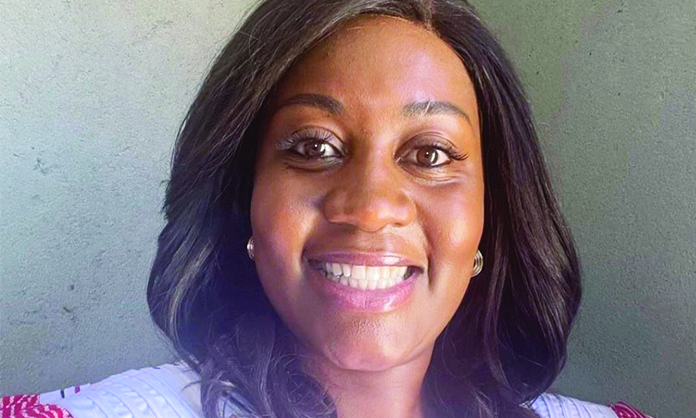The son of Jacqueline Nuses (34) suffers from rectal prolapse.
The condition leaves the boy’s intestines protruding from his anus, and Nuses says she has to keep pushing them back inside with her finger.
“It hurts him, and I do this with so much fear.”
Nuses says her son (5) was first diagnosed with rectal prolapse on 18 February.
The condition involves that the rectum and part of the large intestine slips into the anus.
Nuses says her son and his friends went to the neighbours to eat eembe fruit the day before he was diagnosed.
“I think he had so much of it. I never felt the need to stop him, but around six o’clock he asked to be escorted to the toilet with tears running down his cheeks,” she says.
The distraught mother eventually rushed her son to the hospital where doctors had to push his intestines back.
“I was so relieved because I have never encountered something like that. At first I thought I was going to lose my son,” Nuses says.
She says things went back to normal until 19 March when the boy’s intestines protruded again.
“This time around it was worse, because it came out with so much blood. We rushed him to the hospital and the same thing happened. The doctor pushed it back with his finger, and they gave him the same medication.
“It now happens every day. I was informed by the doctors at the hospital that I should stick it back in with my finger whenever it happens,” she says.
Nuses says she lives in constant fear of permanently damaging her son and of him getting an infection.
“The doctors told me I would be wasting my time coming back to the hospital when all they can do is push it back until 20 April. This is the day his operation is scheduled for.
“I am pleading to have my son hospitalised before this, or for him to have the operation immediately.”
Nuses said she cannot bear to keep sticking her finger in her son’s anus, because it causes both of them pain.
“Can he please get an emergency operation? We can’t live like this any more. I cry every day when he tells me he wants to visit the toilet,” she says.
Rebbecca Titus, a relative of Nuses, says when Nuses goes out to run errands she helps to push the boy’s intestines back.
“It is very scary, and we are afraid to permanently hurt his anus,” she says.
WHAT IS RECTAL PROLAPSE?
According to Mayo Clinic, rectal prolapse occurs when part of the large intestine’s lowest section (rectum) slips outside the muscular opening at the end of the digestive tract (anus).
While rectal prolapse may cause discomfort, it’s rarely a medical emergency.
Rectal prolapse can sometimes be treated with stool softeners, suppositories and other medication, but surgery is usually needed.
The causes of rectal prolapse are unclear.
The condition is often associated with childbirth, although one third of women with the condition have never had children.
According to medicalnewstody.com, risk factors are pregnancy, chronic constipation, straining, and diarrhoea.
According to senior medical superintendent and paediatrician at the Windhoek Central Hospital, Dr Sarah Shalongo, rectal prolapse is a relatively common condition in children.
“As to whether or not eating any food substances can cause rectal prolapse, it could be possible if the patient develops a clinical condition which predisposes them to developing rectal prolapse as mentioned above,” she said.
Shalongo said 3% of patients suffering from severe chronic constipation have rectal prolapse.
“Several organic conditions can also predispose to rectal prolapse like cystic fibrosis, severe malnutrition, connective tissue diseases. However, children suffering from idiopathic rectal prolapse are usually otherwise healthy,” she said.
Usually, the prolapse reduces spontaneously but must be sometimes reduced manually. In mild forms, the prolapse comes out occasionally following major straining or during diarrheal illness, she said.
In cases without spontaneous reduction, one can reduce the prolapse gently. Accompanying constipation is treated with laxatives when present.
Local trans anal treatments such as injections of the prolapse with hypertonic solutions can be offered if the prolapse occurs.
Operation is indicated in rare cases with intractable prolapse and may be considered in patients who are not spontaneously cured in 12 to 18 months of follow-up.
Stay informed with The Namibian – your source for credible journalism. Get in-depth reporting and opinions for
only N$85 a month. Invest in journalism, invest in democracy –
Subscribe Now!






